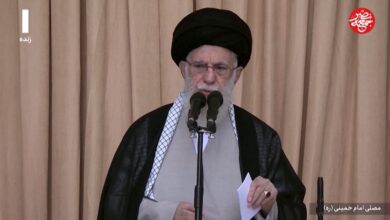Craig Daigle is a specialist on US-Middle East relations during the Cold War, focusing on American foreign policy in the context of the Arab-Israeli wars. His book, “The Limits of Detente: The United States, the Soviet Union and the Arab-Israel Conflict, 1969–1973," presents a seminal analysis of the October 1973 Arab-Israeli war. Drawing on documents only recently made available, Daigle reveals how American and Russian policies were detrimental to regional stability in the Middle East, as the two adversaries preferred to prioritize Cold War detente.
Egypt Independent interviewed Daigle about his work and its contribution to unpacking the 1973 Arab-Israeli war. In this first part, Daigle talks about the pre-war environment and the contentious role of Jordan’s King Hussein.
Egypt Independent: Let’s start with the preface of war. It has long been argued in Egypt that choosing Yom Kippur to launch the war against Israel played a major role in deciding the war’s early consequences. How far can we consider the timing of 6 October a kind of “strategic surprise”? And how did the Israeli and American administrations estimate the war possibilities before October?
Craig Daigle: They were all surprised, that’s exactly what you’re stating, because both Americans and Israelis up to the morning of 6 October had predicted that it was highly unlikely that [former President Anwar] Sadat would attack the Israelis. In addition, they believed that if Egyptians or Syrians attacked, they would lose.
By attacking, Sadat would not only take his army into defeat, but he would also be costing his political career, like a humiliating defeat to Israel. He would almost certainly have been thrown out of the office. Sadat was risking not only his political career, but also the lives of his army, and so American and Israeli intelligence estimated that he wouldn’t attack.
So, they were surprised. No question they were surprised. When they got the news, though, they were less surprised, meaning they understood that it was political objectives, not military objectives. [US former Secretary of State Henry] Kissinger understood that right away.
EI: Did American intelligence get previous information about the attacks in Sinai and Golan?
Daigle: No, they had no knowledge of the war timing. They had a report on the morning of 5 October. Kissinger received a report from the American defense attache in Tel Aviv that discussed the fact that Syrians may be launching an attack, which almost certainly would have had to include Egypt, because Syria would not have gone to war alone.
So they investigated that report on 5 October, and determined that there was little validity to it. So it was investigated, but they still believed up until the morning of 6 October that Egypt would not attack, and these were political exercises. One of the things to keep in mind is that from the spring — from basically April and through October — the US and Israel had been receiving numerous reports that Egypt was going to attack.
King Hussein sent two reports. He sent a report in May and September indicating that there was going to be a war. He didn’t give a specific date, but he said for sure at both times that there was going to be an attack. And we have the documents now, declassified of his telegrams and mails to the US, that there was going to be a war.
EI: We know that the war decision was preceded by several discussions among Sadat, [former Syrian President Hafez al-] Assad and other Arab leaders; among them was King Hussein of Jordan, whose role in the Arab-Israeli conflict remains controversial, disputed and highly questioned. What can American archives tell us about this role?
Daigle: King Hussein played a unique role in the sense that while Jordan didn’t have official relations with Israel, he still maintained unofficial contacts with the Israelis. We have documents now detailing secret conversations that King Hussein had not only met with [former Israeli Prime Minister] Golda Meir, in January 1973, but also in, I think, 1970 as well; but also with some major senior advisers.
The US received reports of those conversations. We know, for example, there is no doubt that he met with Meir in north of Tel Aviv on 25 or 26 September of 1973, so about two weeks before the war began. And this meeting came as a result of his discussions with Sadat and Assad in Cairo on 10 and 11 September.
Hussein believed from those conversations that there was going to be a war. Again, he did not know the precise date — Assad and Sadat wanted Hussein’s involvement, which he would not give, and he warned the US that there was action possibly brewing, now that the telegram was declassified. And then, when nothing happened — when the US still maintained the position that there wasn’t going to be a war — he flew to Israel and met with Meir secretly. And that defining day, [former Israel Defense Minister] Moshe Dayan goes and visits the Syrian front.
He took a trip and looked at the Syrian front around the Golan Heights. Dayan’s conclusion was that it certainly looked possible that the Syrians may attack, so Dayan believed what the rest of Israel’s military establishment did not. They still felt that there wasn’t going to be an attack.




